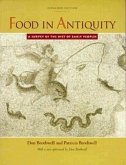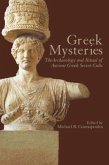Cheese, wine, honey and olive oil - four of Greece's best known contributions to culinary culture - were already well known four thousand years ago. Remains of honeycombs and of cheeses have been found under the volcanic ash of the Santorini eruption of 1627 BC. Over the millennia, Greek food diversified and absorbed neighbouring traditions, yet retained its own distinctive character. In Siren Feasts, Andrew Dalby provides the first serious social history of Greek food. He begins with the tunny fishers of the neolithic age, and traces the story through the repertoire of classical Greece, the reputations of Lydia for luxury and of Sicily and South Italy for sybaritism, to the Imperial synthesis of varying traditions, with a look forward to the Byzantine cuisine and the development of the modern Greek menu. The apples of the Hesperides turn out to be lemons, and great favour attaches to Byzantine biscuits. Fully documented and comprehensively illustrated, scholarly yet immensely readable, Siren Feasts demonstrates the social construction placed upon different types of food at different periods (was fish a luxury item in classical Athens, though disdained by Homeric heroes?). It places diet in an economic and agricultural context; and it provides a history of mentalities in relation to a subject which no human being can ignore.
Hinweis: Dieser Artikel kann nur an eine deutsche Lieferadresse ausgeliefert werden.
Hinweis: Dieser Artikel kann nur an eine deutsche Lieferadresse ausgeliefert werden.









